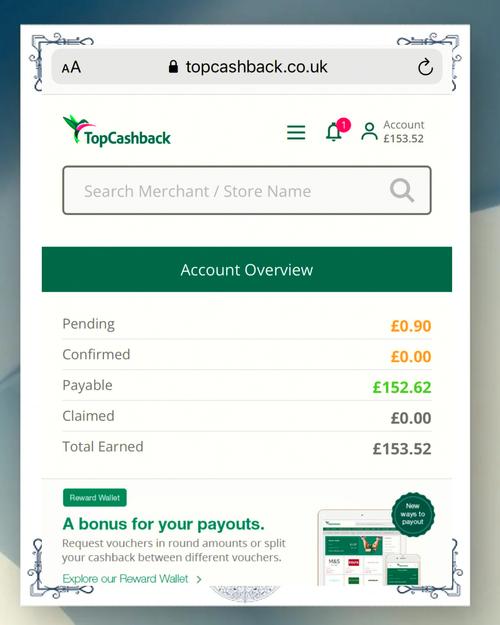Understanding the Importance of Cash
Money is a fundamental aspect of life, and having more of it can significantly improve your financial stability and overall well-being. Whether you’re looking to invest, save, or simply have more flexibility in your spending, getting more cash is a goal worth pursuing. In this article, we’ll explore various ways to increase your cash flow and provide you with actionable tips to help you get more cash.
1. Increase Your Income
One of the most straightforward ways to get more cash is by increasing your income. Here are some strategies you can consider:
-
Seek a raise: If you’re employed, negotiate for a higher salary. Research your industry’s average pay for your position and use that information to support your request.
-
Get a promotion: Aim for a higher-paying position within your company. This could involve taking on additional responsibilities or demonstrating your value to the organization.
-
Find a side hustle: Consider taking on a part-time job, freelancing, or starting a small business to generate extra income.
-
Invest in yourself: Pursue additional education or training to improve your skills and qualifications, which may lead to higher-paying job opportunities.

2. Cut Down on Expenses
Another effective way to get more cash is by reducing your expenses. Here are some tips to help you cut costs:
-
Review your budget: Take a close look at your spending habits and identify areas where you can cut back. This may include dining out less, canceling unused subscriptions, or finding more affordable alternatives for your needs.
-
Reduce debt: High-interest debt can be a significant drain on your finances. Focus on paying down your debts, starting with the highest-interest ones.
-
Save on utilities: Be mindful of your energy consumption and consider energy-efficient appliances. Additionally, look for discounts or special offers from your utility providers.
-
Shop smart: Use coupons, take advantage of sales, and compare prices before making purchases. Consider buying generic brands or shopping at discount stores.
3. Invest Wisely
Investing your money can be a powerful way to grow your cash reserves. Here are some investment options to consider:
-
Stock market: Investing in stocks can offer high returns, but it also comes with higher risk. Do your research and consider consulting with a financial advisor.
-
Bonds: Bonds are generally considered safer than stocks, but they offer lower returns. They can be a good option for conservative investors.
-
Real estate: Investing in real estate can provide a steady stream of income through rental properties. However, it requires a significant upfront investment and can be risky.
-
Peer-to-peer lending: Peer-to-peer lending platforms allow you to lend money to individuals or small businesses in exchange for interest payments. This can be a good option for those who prefer a more hands-on approach to investing.
4. Save Regularly
Consistently saving a portion of your income is crucial for building a cash reserve. Here are some tips to help you save more:
-
Set a savings goal: Determine how much cash you want to accumulate and set a realistic timeline for achieving it.
-
Automate your savings: Set up automatic transfers to your savings account to ensure you consistently save a portion of your income.
-
Use high-yield savings accounts: Look for savings accounts that offer higher interest rates to maximize your earnings.
-
Consider a savings bond: Savings bonds can be a good option for long-term savings, as they offer a fixed interest rate and are backed by the government.
5. Monitor Your Cash Flow
Keeping track of your cash flow is essential for maintaining financial stability and identifying areas for improvement. Here are some tips to help you monitor your cash flow:
-
Use budgeting tools: Utilize budgeting apps or spreadsheets to track your income and expenses.
-
Review your bank statements: Regularly review your bank statements to identify any unauthorized transactions or errors.

